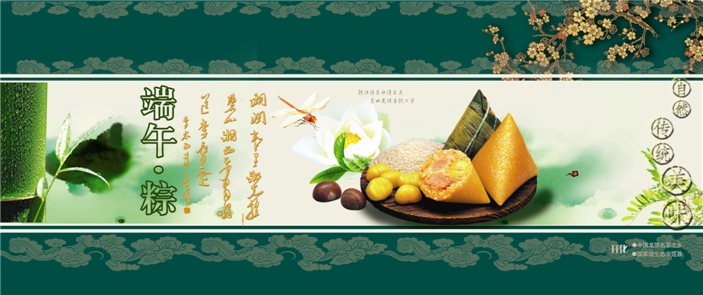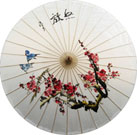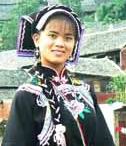Jiangtun Han Tombs Excavated at Pulandian, Liaoning
The excavation site is located on the hillside 500 meters south of Jiangtun village in the northwest of Pulandian, Dalian city, where Han tombs has been found early in 1970s. Archaeologists from Liaoning Provincial Institute of Archaeology and Cultural Relics have conducted investigation and excavation in March 2010, and the work is now over. A total of 207 tombs containing 2000 articles or ...
The Rule of the Sui Dynasty
The Sui Dynasty carried out political reforms, and established for the first time the bureaucracy of three departments and six ministries. The Sui Dynasty also initiated the policy of selecting officials through imperial examinations. The central government had the official patronage. In military system, the administration of servicemen's household registration was formerly separated from th...
Zhi Yao Gong Fu Shen, Tie Chu Mo Cheng Zhen
This legend is about Li Bai (李白), a great poet in Tang Dynasty. Li Bai was naughty and disliked study when he was a child. One day he saw an old woman grinding an iron rod on a big stone when he was playing by a river. Driven by curiosity, Li Bai came up and asked,"What are you doing, granny?""Grinding an iron rod," said the old women without stopping grinding."Then what for?" he asked again."To...
A Brief History of Ancient China
China is the world's oldest surviving nation. It is well over 4000 years old and shows no sign of leaving. Sometimes studying its history can be a long and confusing path. With each emperor and each dynasty it only seems to get more complicated. It is also hard to mark its beginning. Some say it started with the Hsia dynasty. Others claim that people had an organized society before them. The ...
Ancient Beijing during the Period of Western Zhou Dynasty
In 1045BC, King Wu of the Zhou Dynasty exterminated the Shang Dynasty and enfeoffed northYan (where Beijing is now located) to Duke Zhao, a noble who shared the same family name with himself. The Hereditary House of Duke of Zhao of Yan from the Historical Records by Sima Qian recorded the historical fact. Duke of Zhao, called "Jun" in the literary literature, was appointed as Grand Guardian,...
Zhangsun as Empress
As empress, Empress Zhangsun was said to be frugal and humble, taking only the supplies that she needed without living luxuriously. When Crown Prince Chengqian's wet nurse the Lady Sui'an stated that his palace lacked sufficient goods and requested more, she replied, "All a crown prince should worry about is not having enough virtues or enough fame. Why worry about not having enough goods?" ...
Dayu's Great Subdue Over the Flood
During the reign of Emperor Yao, there was an enormous flood in the Basin of the Yellow River. During the flood, crops were submerged, houses destroyed, and humans as well as livestock attacked by vipers and aggressive beasts. People led a hard life. Under such a circumstance, Emperor Yao held a meeting of the tribal alliance to discuss the water-control problem. Leaders of all tribes sugge...
Revolt of the Three Feudatories
The Three Feudatories (三藩) were territories in southern China bestowed by the early Manchu rulers on three Chinese generals (Wu Sangui, Geng Jingzhong, and Shang Kexi). In the second half of the 17th century (from around 1674 to 1681), these generals revolted against the Manchu Qing Dynasty. This rebellion came as the Qing rulers were establishing themselves after their conquest of China in ...
Jingkang Incident
The first 25 years at the beginning of the 12th century saw the darkest age ruled by the fatuous and self-indulgent Emperor Huizong. Although Huizong usefully kept down the two large-scale peasant uprisings, his dynasty was doomed with the rising Nuzhen tribe. There lived in the Changbai Mountains and the Heilongjiang Valley the ancestors of the Nvzhen people long before. The name "Nvzhen" d...
Emperor Xiaowen of Northern Wei
Emperor Xiaowen of Northern Wei ((北)魏孝文帝) (467–499), personal name né Tuoba Hong (拓拔宏), later Yuan Hong (元宏), was an emperor of the Chinese/Xianbei dynasty Northern Wei. Emperor Xiaowen implemented a drastic policy of sinicization, intending to centralize the government and make the multi-ethnic state more easy to govern. These policies included changing artistic styles to reflect Chinese ...
- Home
- Survey of China
- Places of interest
- Martial Arts
- Chinese Medicine
- Diet
- Art
- History of China
- Custom
Art
 more
moreChina Beijing International Diet ...
Recently, The hit CCTV documentary, A Bite of China, shown at 10:40 ...
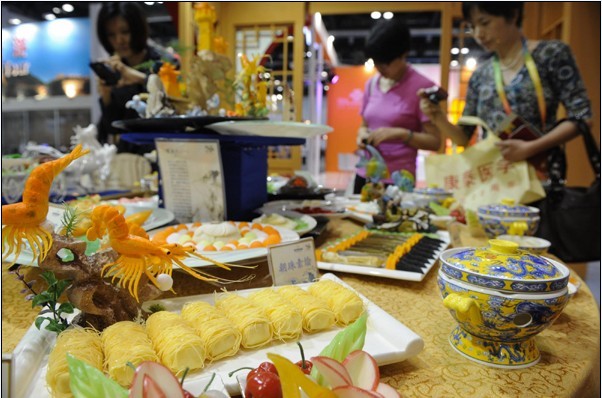
Exhibition of Ancient Chinese Jad...
At least 8,000 years ago, Chinese ancestors discovered a beautiful...
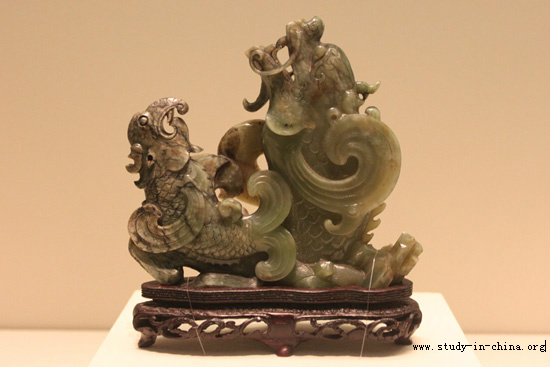
Longmen Grottoes
The Longmen Grottoes, located near Luoyang, Henan Province, are a tr...
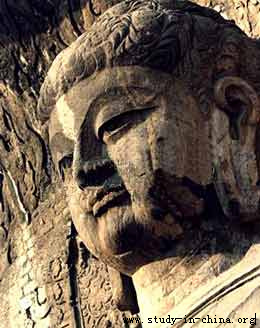
The 13th China Shanghai Internati...
On the evening in Shanghai, lights glittering warmly in front of n...

Custom
 more
moreProvinces Site
Chinese Medicine
 more
moreMartial Arts
Chinese martial arts practitioner pens 400 guide...
A Chinese martial arts practitioner in northern China's Hebei provin...
Tai Chi Master Class Held in Moscow
MOSCOW, June 15, 2016 (Xinhua) -- Students learn from Shaolin ...
Celebriting 70 years' efforts in restoring Mogao...
Work is being carried out at the restoration site of cave No 98 a...
Chinese Food Culture
Pai huang gua (smashed cucumbers)
In a report titled Smashed cucumber salad takes Manhattan, The New Y...
Jian bing (grilled savory crepe)
Jian bing, a form of grilled savory crepe with stuffing, is a popula...
General Tao's Chicken
Though name of the dish comes from general Zuo Zongtang (1812-1885...








